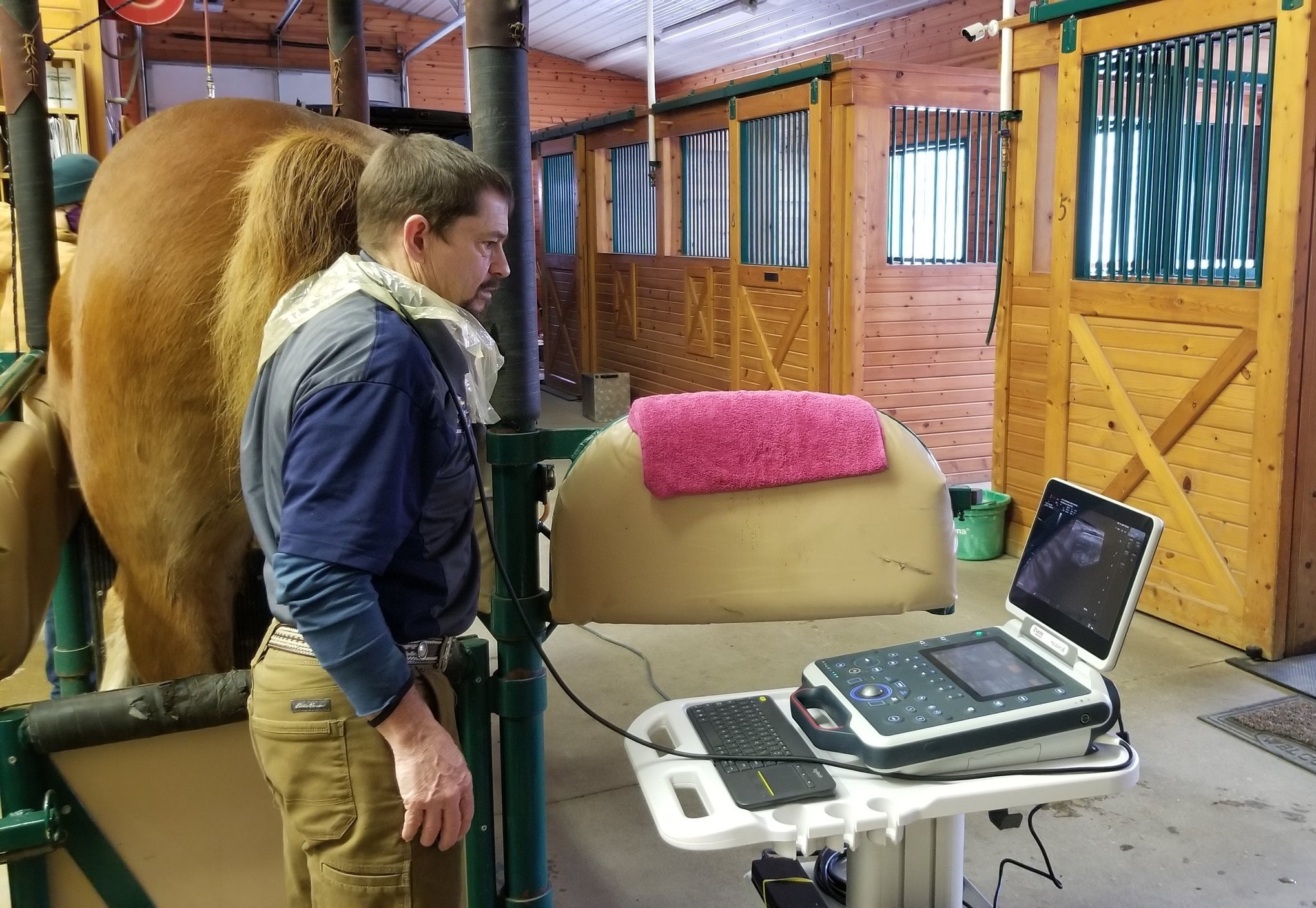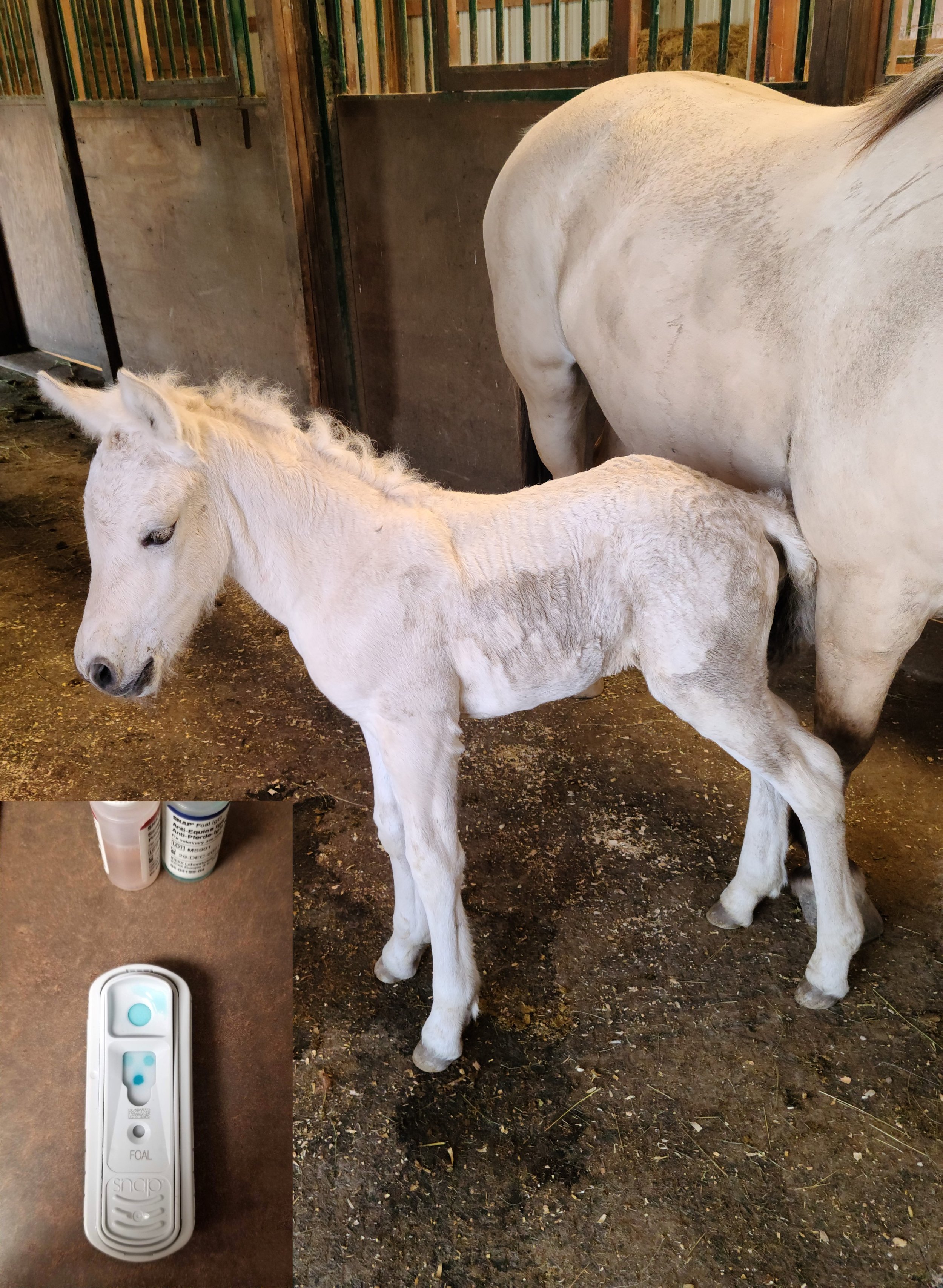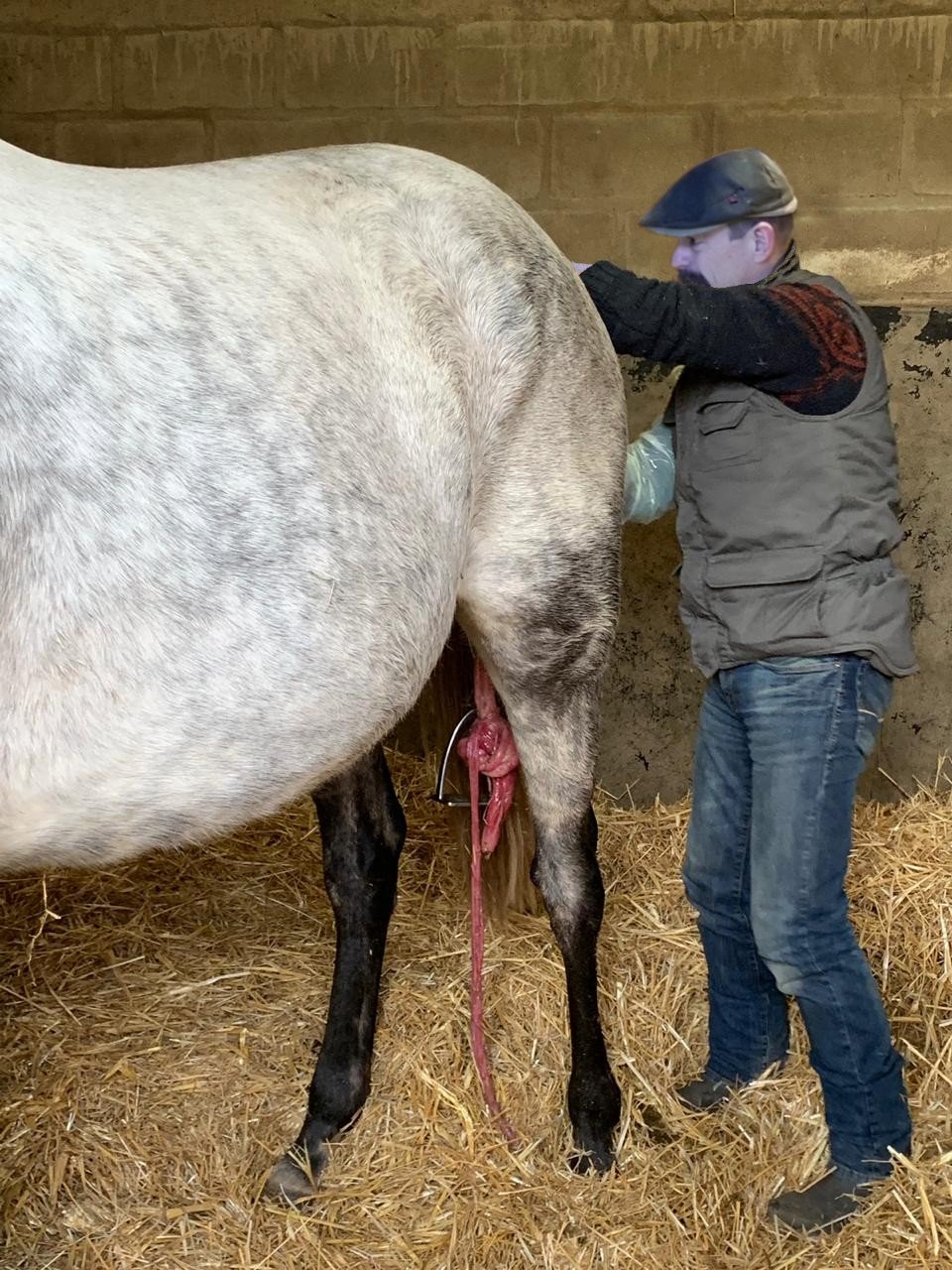Reproduction Services
Reproductive Examination
Breeding your mare is a big and exciting decision and we are here to help! The reproductive examination for breeding is a transrectal ultrasound examination of your mare’s reproductive tract to check for any abnormalities (and make any associated diagnostic or treatment decisions), stage where she is in her cycle, and determine when it is best to breed her. Depending on initial exam findings, this examination may need to be repeated to monitor where she is in her estrus cycle, when to breed, and/ or treatment progress. This examination provides extremely valuable information for deciding if any hormonal treatment is necessary for breeding and when to give it, when to ship semen for artificial insemination, when to breed, and to check whether she ovulated as expected post-breeding.
Artificial Insemination
After receiving your shipment of semen and confirming it is the appropriate time to breed, our veterinarians are prepared to artificially inseminate your mare with either fresh-chilled or frozen semen. This procedure involves depositing the semen from the semen straw directly into the uterus of your mare with a uterine pipet. After the procedure, the mare is allowed to rest and transrectal ultrasound is used to monitor for and confirm ovulation.
Pregnancy Examination
At 14-16 days post-ovulation, a mare should be transrectally ultrasounded to confirm pregnancy and monitor for twinning. Twinning in equids can be detrimental. Oftentimes, twinning in horses will lead to a loss of both fetuses in an earlier stage of pregnancy. If both fetuses survive to later stages of pregnancy, one or both usually die and can put the mare’s life at risk as well as the fetuses’. For these reasons, monitoring for twins between days 14-16 is extremely important. If twins are identified, embryo reduction can be completed at this time to protect the pregnancy and the mare.
Mare Infertility Evaluation
There are multiple causes for infertility in the mare. Infertility evaluation includes a breeding conformation examination, transrectal palpation and ultrasonography for evaluation of the reproductive tract, culture and cytology of the uterus, and possibly a biopsy of the reproductive tract tissue for evaluation. Depending on the determined cause of infertility, the mare may be treated and bred at a later time, or selection of a different mare may be discussed or recommended.
New Foal Examination
Having a new foal is an amazing and exciting experience, but also comes with a lot of responsibility. Evaluating foals between 12-24 hours after birth is extremely important for their health. Foals need to drink quality mare’s colostrum before 18-24 hours of age or risk developing failure of passive transfer. Foals that develop failure of passive transfer require plasma transfers and are at increased risk of developing septic joints, systemic sepsis, gastrointestinal dysbiosis, and other deadly diseases. By evaluating the mare’s colostrum and the foal’s ability to nurse appropriately, steps can be taken to mitigate these concerns. Foals are also evaluated for evidence of broken bones, a ruptured bladder from the birthing process, patent urachus, gastrointestinal obstruction (such as retained meconium), gastrointestinal diseases, any developmental abnormalities and more during this examination. It is also important to understand that foals oftentimes have conformational abnormalities that are significantly easier to correct when identified and treated early on. Something as simple as bandaging in the first few days or weeks of life may correct a conformational abnormality that will require a surgical correction at an older age.
Immunoglobulin G (IgG) SNAP Testing
Immunoglobulin G levels in the blood are evaluated to determine if your foal received enough quality colostrum from his mother to have protective immunity. If the IgG value is 800 mg/dL or above, it has received appropriate protective immunity. If your foal is between 12-24 hours of age and the value is under 800 mg/dL, measures can be taken to make sure your foal received quality colostrum and the test can be repeated in 12 hours. If the levels are above 800 mg/dL, no further treatment is required to protect against failure of passive transfer. If the values are still below 800 mg/dL, a plasma transfusion is necessary to protect the foal. The amount of plasma required is determined from the IgG levels and the foal’s clinical condition.
Postpartum Mare Examination
While a lot of our initial attention post-foaling goes towards the adorable new addition to your herd, we all know your mare deserves a great deal of credit and attention too. The most common concerns for mares postpartum are a retained placenta, trauma from parturition, colic, and producing enough quality colostrum for her new foal. If your mare has not passed her complete placenta within 3 hours of foaling, or is not producing appropriate colostrum within 2 hours postpartum, it is an emergency. If she has passed her entire placenta and is producing colostrum appropriately, a complete physical exam with special attention to the aforementioned topics can be completed at the time of the foal’s examination.







